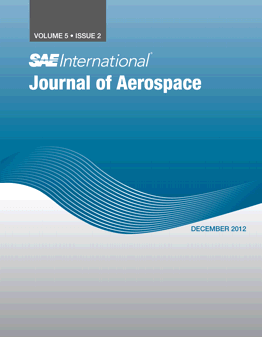
SAE International Journal of Aerospace
Scope & Guideline
Shaping the Future of Aerospace Knowledge.
Introduction
Aims and Scopes
- Aerospace Vehicle Dynamics and Control:
Research on the dynamics and control systems of various aerospace vehicles, including manned, unmanned, and hypersonic vehicles, focusing on stability, control algorithms, and system optimization. - Aerospace Materials and Structures:
Studies involving the investigation of materials used in aerospace applications, including composites and their behavior under various conditions, as well as the structural integrity of aerospace components. - Aerodynamics and Fluid Mechanics:
Exploration of aerodynamic principles and fluid dynamics as they pertain to aircraft and spacecraft design, including the analysis of airflow, drag reduction, and performance enhancement. - Autonomous and Uncrewed Systems:
Focus on the development and application of autonomous systems and uncrewed aerial vehicles (UAVs), including control systems, navigation, and operational protocols. - Combustion and Propulsion Systems:
Research dedicated to the combustion processes and propulsion technologies in aerospace applications, examining efficiency, emissions, and innovative fuel types. - Data Analysis and Machine Learning Applications:
Utilization of data analysis techniques and machine learning algorithms in aerospace research, including predictive modeling, fault detection, and performance optimization.
Trending and Emerging
- Uncrewed Aerial Systems and Autonomy:
An increasing number of studies focus on the development, control, and application of uncrewed aerial systems (UAS), emphasizing autonomy, operational safety, and integration into airspace. - Machine Learning and Artificial Intelligence in Aerospace:
Emerging research themes highlight the application of machine learning and AI techniques for predictive maintenance, fault detection, and optimization of aerospace systems. - Hypersonic Vehicles and Technologies:
There is a growing interest in hypersonic flight research, including vehicle design, control systems, and aerodynamic performance, driven by advancements in materials and engineering. - Sustainability and Alternative Fuels:
Research on sustainable aerospace practices, including the use of alternative fuels and energy-efficient technologies, is becoming increasingly prominent as the industry seeks to reduce its environmental impact. - Advanced Materials and Manufacturing Techniques:
Innovations in materials science, including the use of composites and advanced manufacturing methods such as 3D printing, are gaining traction as critical areas of focus in aerospace engineering.
Declining or Waning
- Traditional Aerodynamic Testing Methods:
Research focused on classical wind tunnel testing and other traditional aerodynamic evaluation techniques has seen a reduction as more emphasis is placed on computational fluid dynamics (CFD) and simulations. - Conventional Propulsion Systems:
The exploration of traditional jet and rocket propulsion systems is declining in favor of more innovative propulsion technologies, including electric and hybrid systems. - Static Structural Analysis:
Studies that emphasize static analysis of structures without considering dynamic factors or real-world operational conditions are becoming less frequent as dynamic and real-time analysis gains importance. - General Aerospace Safety Protocols:
Studies focused on general safety protocols without a specific technological or operational innovation are being overshadowed by research that incorporates advanced technologies, predictive analytics, and machine learning.
Similar Journals
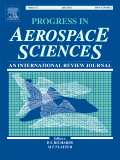
PROGRESS IN AEROSPACE SCIENCES
Elevating the future of flight with cutting-edge insights.PROGRESS IN AEROSPACE SCIENCES is a prestigious journal published by PERGAMON-ELSEVIER SCIENCE LTD, recognized as a leading platform in the field of aerospace engineering, mechanical engineering, and mechanics of materials. With an impressive history dating back to 1961, the journal covers a wide spectrum of topics pivotal to advancing aerospace technology and innovation. Its recent ranking as Q1 in multiple engineering categories underscores its significance, ranking #1 in Aerospace Engineering and placing within the top 20 percentile in both Mechanical Engineering and Mechanics of Materials, according to Scopus assessments. Researchers, professionals, and students looking to engage with high-impact research will find PROGRESS IN AEROSPACE SCIENCES an invaluable resource, offering insights into cutting-edge developments and methodologies. Although it does not operate under an open-access model, the journal upholds rigorous peer-review standards, ensuring that the published content meets the highest academic integrity. Situated in the United Kingdom, it plays a critical role in fostering international collaboration and knowledge-sharing in the aerospace sector.

International Journal of Aeronautical and Space Sciences
Shaping Tomorrow's Aerospace TechnologiesThe International Journal of Aeronautical and Space Sciences, published by Springer, is a prominent platform dedicated to advancing research and innovation in the fields of Aerospace Engineering, Control and Systems Engineering, Electrical and Electronic Engineering, and Materials Science. With an ISSN of 2093-274X and an E-ISSN of 2093-2480, the journal has established itself as a vital resource since its inception in 2011, currently offering insights that span a wide range of contemporary challenges and technological advancements in aeronautics and space exploration. Ranking in the Q2 category across multiple disciplines, including Aerospace and Control Engineering, signifies its recognized impact and quality within the academic community. Although not an open-access journal, it remains accessible to researchers, professionals, and students seeking to enhance their understanding of complex aerospace systems and their applications. The journal’s commitment to publishing high-quality research makes it indispensable for those aiming to contribute to, or stay informed about, the evolving landscape of aerospace technology.
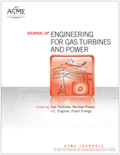
JOURNAL OF ENGINEERING FOR GAS TURBINES AND POWER-TRANSACTIONS OF THE ASME
Advancing the Future of Energy EngineeringJournal of Engineering for Gas Turbines and Power - Transactions of the ASME, published by the esteemed American Society of Mechanical Engineers (ASME), is a leading interdisciplinary journal dedicated to advancing the fields of energy engineering, aerospace, nuclear energy, and mechanical engineering. With an impressive history dating back to 1960 and continuing its contributions through 2024, this journal boasts a Q2 ranking in multiple engineering categories, reflecting its strong impact on both academia and industry. Although not an open-access journal, it provides invaluable insights and research findings that cater to the needs of professionals, researchers, and students alike. The journal's ISSN is 0742-4795 with an E-ISSN of 1528-8919, ensuring widespread visibility in the global academic community. Indexed in Scopus, it ranks notably within its fields—21st in Nuclear Energy and Engineering and 51st in Aerospace Engineering—underscoring its relevance and contribution to critical technological advancements. Researchers in this domain will find the journal a vital resource for innovative studies, practical applications, and the latest developments related to gas turbines and power generation.

JOURNAL OF THE ASTRONAUTICAL SCIENCES
Pioneering Research in the Realm of AstronauticsJOURNAL OF THE ASTRONAUTICAL SCIENCES, published by Springer Heidelberg, serves as a leading platform dedicated to advancing the fields of aerospace engineering and planetary science. With an ISSN of 0021-9142 and an E-ISSN of 2195-0571, this journal has established a significant presence within the academic community, evidenced by its categorization in the Q2 and Q3 quartiles for 2023, positioning it among the top publications in its field. The journal encompasses a spectrum of research that spans from innovative aerospace technologies to the exploration of planetary systems, reflecting its rich scope developed since its inception in 1969. Although not Open Access, it provides vital contributions to ongoing discussions in aerospace research, appealing to researchers, professionals, and students eager to deepen their understanding of astronautics. With a notable impact factor and rankings in Scopus—66th in Aerospace Engineering and 64th in Space and Planetary Science—this journal continues to be a pivotal resource for those engaged in the exploration and utilization of space.

Propulsion and Power Research
Advancing the Frontiers of Propulsion and Power.Propulsion and Power Research, published by KEAI PUBLISHING LTD, is a leading Open Access journal that has been advancing the field of propulsion and power systems since its inception in 2012. With its commitment to fostering scientific discourse and innovation, the journal has gained a prominent position within academia, achieving a Q1 ranking in multiple categories such as Aerospace Engineering, Automotive Engineering, and Fluid Flow and Transfer Processes as of 2023. With an impressive ranking of #18 out of 153 in Aerospace Engineering and consistent recognition in the Scopus rankings, the journal explores critical advancements and research findings that propel the industry forward. As an Open Access publication, it ensures that groundbreaking research is readily available to a broad audience, enhancing collaboration between researchers, practitioners, and students. The journal's scope encompasses a wide range of topics within propulsion and energy solutions, making it an essential resource for anyone keen on discovering significant developments in this dynamic field.
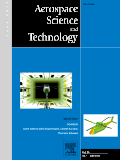
Aerospace Science and Technology
Empowering the Future of Aerospace EngineeringAerospace Science and Technology, published by ELSEVIER FRANCE-EDITIONS SCIENTIFIQUES MEDICALES ELSEVIER, is a leading journal in the field of aerospace engineering, boasting an impressive 2023 Q1 ranking and a significant position in the Scopus Ranks, where it stands at Rank #7 out of 153 in the Engineering - Aerospace Engineering category, reflecting its credibility and impact with a 95th percentile ranking. Since its inception in 1997, this journal has provided a robust platform for the dissemination of pioneering research and advancements in aerospace technology, focusing on innovative methodologies and applications in the aerospace sector. With a commitment to open access, researchers, professionals, and students can easily engage with cutting-edge findings that drive the industry forward. The journal not only seeks to expand knowledge but also aims to foster collaboration among scholars across the globe, making it an essential resource for anyone looking to stay at the forefront of aerospace innovation. For more information, visit its website or refer to its dedicated address at 65 Rue Camille Desmoulins, CS50083, 92442 Issy-Les-Moulineaux, France.
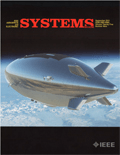
IEEE AEROSPACE AND ELECTRONIC SYSTEMS MAGAZINE
Delivering high-impact research for the aerospace community.IEEE Aerospace and Electronic Systems Magazine, published by the IEEE Institute of Electrical and Electronics Engineers Inc, stands as a pivotal resource for scholars and practitioners in the fields of aerospace and electronic systems. With an impressive impact factor and consistently ranking in the top quartiles of its categories, this journal has been dedicated to providing high-quality content since its inception in 1986. Covering a broad spectrum of topics across Aerospace Engineering and Electrical and Electronic Engineering, it garners significant attention, ranked #15 in Aerospace Engineering and #130 in Electrical and Electronic Engineering by Scopus, placing it firmly in the 90th and 83rd percentiles, respectively. The magazine’s commitment to delivering cutting-edge research makes it an essential tool for academicians, industry professionals, and students alike, facilitating advancements in technology and innovation across the globe. Submissions undergo rigorous peer-review, ensuring that only the most relevant and impactful studies contribute to the ongoing dialogue in the aerospace and electronic systems community.

Aerospace Research in Bulgaria
Shaping the future of aerospace through rigorous research.Aerospace Research in Bulgaria is a prestigious academic journal dedicated to advancing the field of aerospace engineering and technology. Published by the BULGARIAN ACADEMY OF SCIENCES, SPACE RESEARCH & TECHNOLOGY INSTITUTE (SRTI-BAS), this journal serves as a key platform for researchers, engineers, and professionals seeking to share original research, innovative technologies, and critical reviews related to aerospace applications. With the ISSN 1313-0927 and E-ISSN 2367-9522, the journal aims to contribute significantly to the global aerospace community. Although the journal operates under a traditional access model, it emphasizes the importance of research collaboration and disseminating knowledge in the ever-evolving aerospace sector. The editorial team is committed to maintaining high standards in peer review, making it an essential resource for academics and practitioners alike. Located at ACAD. GEORGI BONCHEV STR., SOFIA 1113, BULGARIA, this journal not only highlights Bulgarian contributions to aerospace research but also aims to engage with a broader international audience, fostering advances that propel the industry forward.
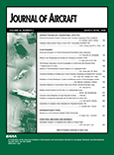
JOURNAL OF AIRCRAFT
Pioneering Research in Aircraft Engineering.JOURNAL OF AIRCRAFT, published by the American Institute of Aeronautics and Astronautics, stands at the forefront of aerospace engineering research, serving as a critical resource for researchers, professionals, and students in the field. With a proud publication history dating back to 1964 and continuing through 2024, the journal has established itself as a leading forum for innovative studies and advancements in aircraft design, technology, and utilization. Notably, it holds a prestigious Q1 ranking in Aerospace Engineering and is positioned at the 75th percentile among its peers. As a non-open access publication, it offers a subscription-based model, ensuring high-quality content disseminated to a discerning audience. The ISSN 0021-8669 and E-ISSN 1533-3868 provide easy reference for those seeking to engage with pioneering research in aviation and aircraft systems. Researchers and practitioners alike will find valuable insights and comprehensive analyses in this esteemed journal that continually shapes the development of the aerospace industry.

Journal of Aeronautics Astronautics and Aviation
Transforming Theoretical Concepts into Practical Aerospace SolutionsJournal of Aeronautics Astronautics and Aviation, published by the Aeronautical & Astronautical Society Republic of China, is a premier scholarly journal dedicated to advancing knowledge in the dynamic fields of aerospace engineering and space sciences. Operating under the ISSN 1990-7710, this journal plays a pivotal role in disseminating innovative research and practice-oriented studies that address both theoretical and applicative aspects of aeronautics and astronautics. With an impressive history spanning from 2006 to 2024, the journal has established itself as a valuable resource for researchers, professionals, and students alike, featuring contributions that reflect the latest developments and trends within the industry. In the latest rankings, it holds a Q3 classification in Aerospace Engineering and Q4 in Space and Planetary Science, indicating its growing influence despite its niche scope. With an open access model that facilitates widespread readership, the Journal of Aeronautics Astronautics and Aviation strives to foster collaboration and knowledge sharing in these ever-evolving scientific domains.